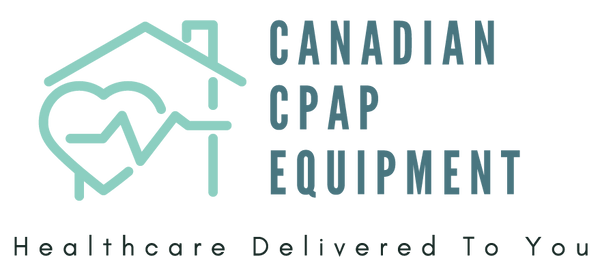When you embark on the journey of diagnosing and treating sleep apnea, you'll encounter a team of healthcare professionals dedicated to your well-being. Among the most crucial members of this team, especially in the context of at-home sleep apnea testing and subsequent treatment, is the respirologist. Often referred to as a pulmonologist in other regions, a respirologist is a medical doctor specializing in the respiratory system, and their expertise is invaluable in managing sleep-disordered breathing.
What is a Respirologist?
A respirologist is a physician who has undergone extensive training in the diagnosis and treatment of diseases affecting the lungs and respiratory system. This includes conditions like asthma, COPD, pneumonia, and critically, sleep-related breathing disorders such as sleep apnea. Their deep understanding of respiratory physiology, lung function, and sleep medicine makes them uniquely qualified to interpret complex sleep study data and formulate effective treatment plans.
The Respirologist's Role in At-Home Sleep Apnea Testing
While at-home sleep apnea tests offer unparalleled convenience, the raw data collected by devices like the WatchPAT ONE requires expert interpretation. This is where the respirologist plays a pivotal role:
-
Accurate Diagnosis: After you complete your at-home test, the collected data is sent to a respirologist for thorough analysis. They meticulously review parameters such as your Apnea-Hypopnea Index (AHI), Oxygen Desaturation Index (ODI), and other sleep and breathing metrics. Their specialized knowledge allows them to accurately diagnose the type and severity of your sleep apnea.
-
Differential Diagnosis: Respirologists are skilled at differentiating between various sleep-disordered breathing conditions and other respiratory issues that might mimic sleep apnea symptoms. This ensures that your diagnosis is precise and your treatment is targeted.
-
Personalized Treatment Recommendations: Based on your test results, medical history, and individual needs, the respirologist will recommend the most appropriate treatment plan. For Obstructive Sleep Apnea (OSA), this often involves prescribing Continuous Positive Airway Pressure (CPAP) therapy, but they may also consider other options like oral appliances or lifestyle modifications.
-
CPAP Prescription: If CPAP therapy is recommended, the respirologist is the medical professional who will issue the necessary prescription for your CPAP machine and specific pressure settings. This ensures that your therapy is tailored to your unique physiological requirements.
Beyond Diagnosis: Ongoing Management and Follow-Up
The respirologist's involvement doesn't end with the initial diagnosis and prescription. They are central to your ongoing sleep apnea management:
-
Monitoring Treatment Effectiveness: Through follow-up consultations, often conducted virtually, the respirologist will review your CPAP usage data, assess your symptom improvement, and ensure your therapy is effective. They can make adjustments to your pressure settings or recommend alternative masks if needed.
-
Addressing Complications: If you experience any side effects or complications with your CPAP therapy, or if your symptoms persist despite treatment, the respirologist can troubleshoot issues and provide solutions.
-
Managing Co-morbidities: Given the strong links between sleep apnea and other health conditions like hypertension, diabetes, and cardiovascular disease, respirologists often collaborate with your other healthcare providers to ensure a holistic approach to your health.
- Patient Education: They play a vital role in educating patients about their condition, the importance of adherence to treatment, and lifestyle changes that can further improve outcomes.
Why Their Expertise Matters
Choosing a provider that ensures your at-home sleep apnea test results are interpreted by a sleep-trained respirologist offers several key advantages:
-
Medical Authority: You receive a diagnosis and treatment plan backed by specialized medical expertise.
- Accuracy and Reliability: Their in-depth knowledge minimizes the risk of misdiagnosis and ensures the most appropriate treatment.
-
Continuity of Care: They provide ongoing support and adjustments, ensuring your long-term success with sleep apnea management.
In essence, the respirologist acts as your medical guide through the sleep apnea journey, from the initial test interpretation to long-term management. Their specialized knowledge ensures that you receive the highest standard of care, leading to better sleep and a healthier life.
Next Steps: Understanding the Canadian context is important. In our next post, we'll delve into Sleep Apnea in Canada: Understanding Provincial Guidelines and Coverage.

